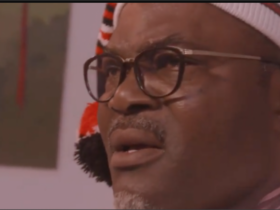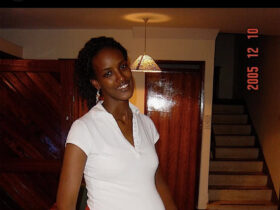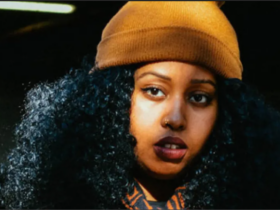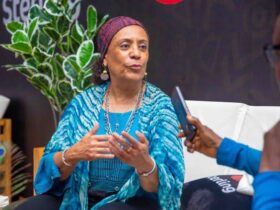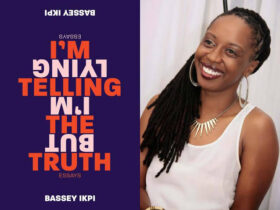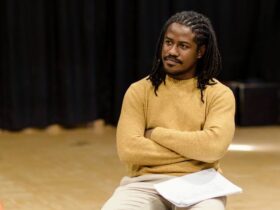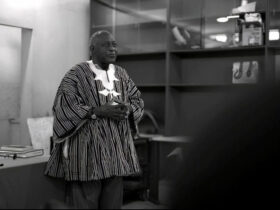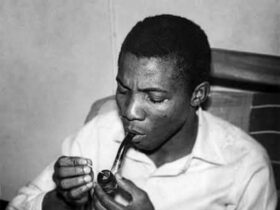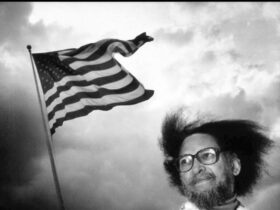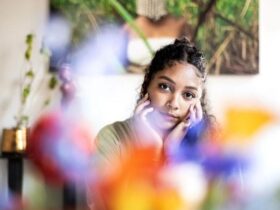Ikeogu Oke was a Nigerian poet and journalist who died in Abuja on November 27th, 2018, at 51. He hailed from Ohafia in south-eastern Nigeria and was considered a deeply spiritual person. He sought to embody traditional African beliefs, notably wearing the Ohafia war dress to high-profile events to highlight his Igbo heritage.
Ketty Nivyabandi, born in 1978, is a Burundian poet and human rights activist.
In her poetry, the depth of human feeling is evoked through imagery that is as gripping as it is urgent.
Véronique Tadjo is a renowned Ivorian novelist, poet, and writer. At 69, her work stands as a powerful testament to her rich heritage and the influence of the French language, in which most of her writing is rooted and written. Her work has been translated into over 20 languages, but as English author Samuel Johnson observed, “the beauties of poetry cannot be preserved in any language except that in which it was originally written.
Bassey Ikpi still identifies as a writer though she has referred to herself as an “ex-poet”. She has recently clarified that poetry was simply the conduit through which she could articulate all the emotions she failed to understandably express. Now, she says, she is healthier than ever and is interested in publicising wellness as a possibility, as a lifestyle.
Lagos influences most of his writing—its chaos, culture and vibrance, diversity—and like many other Nigerian writers, his work is inspired by gender-based violence and conflict themes. In an interview with Funtimes Magazine, he said, “Most of my initial poems have been responses to societal issues.” However, recently, he has been “very interested in the concept of joy; what it is, why it’s important, and how to capture and share it through poetry and performance.”
Born in 1935 in Wheta, Ghana, his works often derived originsfrom his Ewe heritage. He was deeply influenced by African oral literature and sought to preserve the cultural legacy of his people through his writings. His most notable works include Night of My Blood and The House by the Sea which explored various themes associated with the shared African struggles during the decolonisation period.
Renowned author, Aminatta Forna, once said, “If you want to know a country, read its writers.” Perusing Christopher Okigbo’s literary works would teach you of Biafra—a mirage of a country.
Dennis Brutus (1924–2009) was a South African poet, educator, and anti-apartheid activist, renowned for his passionate resistance to racial injustice and his captivating poetry. Born in Harare, Zimbabwe, and raised in Port Elizabeth, South Africa, Brutus was fueled by the circumstances surrounding his nativity and became a leading voice in the fight against apartheid during his time. His activism led to his arrest and imprisonment on Robben Island, where he was held alongside Nelson Mandela.
Born in Maryland in 1990, Safia has lived a nomadic life, but she always identified deeply with her Sudanese roots, with Arabic as her first language. Living in America introduced her to a new language and culture and the tension between these worlds created a space where poetry became a tool for hybrid expression.






